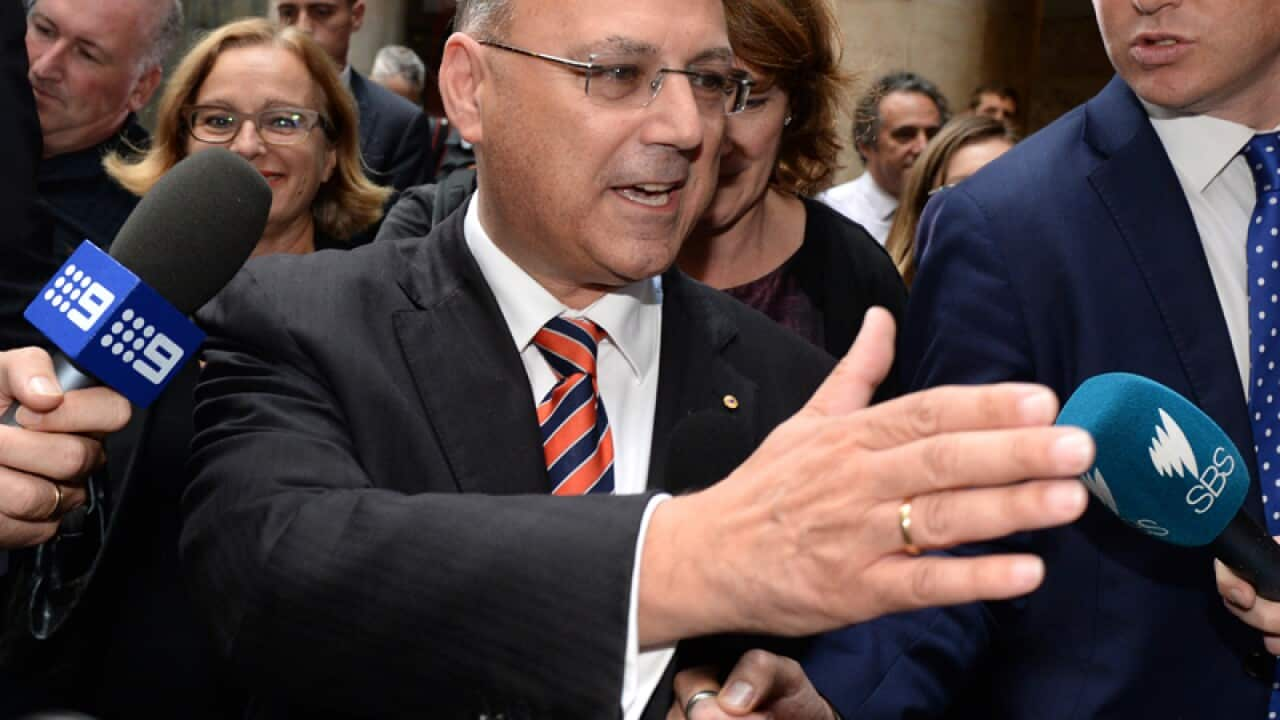The Senate will be asked to consider action against Arthur Sinodinos after the cabinet secretary failed to appear before a parliamentary inquiry into political donations.
The terms of reference for the inquiry specifically directed that Senator Sinodinos, who was appointed by Prime Minister Malcolm Turnbull, appear before the committee to answer questions.
But he didn't turn up to a public hearing in Canberra on Thursday.
Senator Sinodinos was NSW Liberal Party treasurer and finance director when secret donors poured $700,000 into the party's coffers ahead of the 2011 state election.
The NSW Electoral Commission is refusing to pay the Liberals more than $4.4 million until it reveals the secret donors.
Senator Sinodinos earlier told ABC radio the inquiry was "just a political stunt" and said there was ample opportunity for Labor to scrutinise him via parliamentary question time and estimates hearings.
Committee chairwoman Senator Jenny McAllister told the hearing on Thursday the committee had resolved to report to the Senate on two matters: Senator Sinodinos' failure to comply with the order to appear and the possible unauthorised disclosure of his letter responding to the committee.
She said it was a matter for the Senate and not the committee to determine any possible consequences.
The committee received a response from Senator Sinodinos on Wednesday night in which he suggested he had not yet been asked to appear.
However, she said the minister had known since last Tuesday that he would be called and the committee had written two letters to him.
Responding to the minister's claim the inquiry was "too short", the Labor senator said the committee would be happy to re-establish a longer inquiry after the election.
Giving evidence to the inquiry, Australian Electoral Commissioner Tom Rogers said disclosure of donations was an "underpinning principle" of Australian democracy.
However, he declined to comment on the matter of the Liberals' Free Enterprise Foundation until the final report by the NSW Independent Commission Against Corruption was published.
"From our perspective, we conducted a compliance review on the Free Enterprise Foundation. They have disclosed appropriately under the Commonwealth Electoral Act," Mr Rogers said.
However, he said NSW and federal electoral laws had different disclosure provisions.
The AEC has recommended that a new system be introduced that would ensure "associated entities" such as the FEF were abolished and no money could be spent on election campaigns unless it came out of a political party's campaign account.
That would ensure "all money in and all money out" could be disclosed, Mr Rogers said.
The AEC is investigating 20 entities and donors, and some are likely to be referred to prosecutors.

